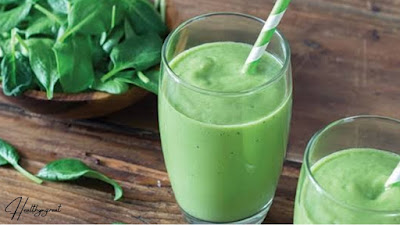Why Spinach Considered Health And How To Add Them In Kids Plates
Spinach is one of the healthiest vegetables in the world. They are also known as Spinacia oleracea and are known to originate from Persia. It's know to belongs to the amaranth family and is related to beets and quinoa.
Spinach are rich source of a multitude of nutrients, that makes them one of the healthiest vegetable. Spinach are not only super low in calories but are packed with minerals like magnesium, potassium, vitamins such as B6, B9, E along with iron, folic acid, calcium and many more.
Additionally they are also rich in phytonutrients such as carotenoids (beta-carotene, lutein, and zeaxanthin) and flavonoids - all of which provide us with powerful antioxidant protection.
Spinach are not only nutrient rich, they are also known to protect against inflammatory problems, blood pressure issues, bone problems and stress-related issues, reduce oxidative stress, help prevent cancer, and may also benefit eye.
You can enjoy this versatile food as a salad, vegetable juice or a green smoothie. It can also be cooked lightly and eaten as a side dish or added to other soups and dishes.
This article tells you everything you need to know about spinach.
Spinach Nutrition Facts
- Calories: 20
- 0 gram of fat
- 64.6 mg of sodium
- 3 gram of carbohydrates
- 2 gram of fiber
- 0 gram of sugar
- 2 gram of protein
- 10mg of vitamin K
- 24mg of vitamin C
Health benefits of spinach
Spinach Improve Eye Health
This leafy green is also rich in antioxidants, which reduce the damaging effects of free radicals, which can have a negative impact on your vision, and lead to age-related issues like glaucoma.
Studies have also shown that lutein and zeaxanthin may even be able to reverse existing damage. [5] [6]
May Lower Blood Pressure
A study in 27 people found that eating spinach effectively lowered blood pressure levels. Several other studies observed similar effects, indicating that spinach boosts heart health. [9] [10] [11]
Additionally spinach is also rich in potassium and low in sodium, that helps lower high blood pressure. Plus, antioxidants and special peptides found in spinach are also beneficial to lower blood pressure.
Spinach May Help Prevent Cancer
In one study, phytonutrients in spinach have demonstrated they can reduce oxidative damage. This may reduce the risk of inflammation-related conditions . [12]
Several human studies have found that spinach consumption to a reduced risk of prostate cancer. Eating this leafy green may also help prevent breast cancer. [13] [14]
Additionally spinach contains two components, MGDG and SQDG. Studies have also found that these compound helped slow tumor growth in a person’s cervix. They also decreased the size of the tumor. [15] [16]
Help Fight Oxidative stress
In a study in 8 healthy people found that spinach helped prevent oxidative damage. Although this study was quite small, its findings are backed up by other animal and human research. [17] [18] [19]
Spinach May Help Improve Bone Health.
Spinach can help you make your bones stronger and dense due to the presence of vitamin K and calcium in it. Basically, vitamin K is one of the most essential nutrients that are needed for bone regeneration and healing of bones. [20]
Spinach gives you of 99 mg of calcium in the single serving (which is 10% of the recommended daily allowance) that may help improve bones and teeth. Additionally spinach is also rich in protein that protects the collagen structures in the bones and strengthens both muscles and bones.
Other Health Benefits Of spinach
- Spinach Helps with Cholesterol
- Help Regulates Hypothyroidism
- Spinach may help weight loss
- May Help Boost Immunity
- Spinach Can cure Arthiritis
- Helps In The Prevention Of Adult Asthma
- Spinach Help Control Diabetes
- Prevents The Risk Of Alzheimer’s Disease
- Reduces Appetite And Increases Meal Satisfaction
- Anti-Carcinogenic Properties
Potential Downsides
- Kidney Stones.
- Abdominal Pain.
- Blood clotting.
- Low Blood Pressure.
- Convulsions.
- Vomiting.
- Weak Pulse.
- Headache.
How To Add Them In Diet
Spinach Smoothie
Nutrient fact: Calories: 105kcal | Carbohydrates: 23g | Protein: 9g | Fat: 1g | Saturated Fat 1g|Sodium: 85mg | Potassium: 293mg | Fiber: 3g.
- 1 cup ice cubes
- 2 cups frozen pineapple chunks
- ½ cup frozen banana slices, about 1 medium banana
- 1 cup diced apple, Fuji, red, or green apple, cut into 1-inch pieces
- 2 cups baby spinach
- ½ cup nonfat plain Greek yogurt, or dairy-free
- 1 cup unsweetened almond milk
Cheers! 🥂
The bottom line
If you’re interested in its health-boosting potential, you should definitely add them as they are delicious too, and blends with almost every dishes.
If you are new to our blog and prefer our statistics please subscribe us and follow us and you will be notified everytime when we post something new.










Post a Comment
0 Comments
If you have any doubt please let me know.